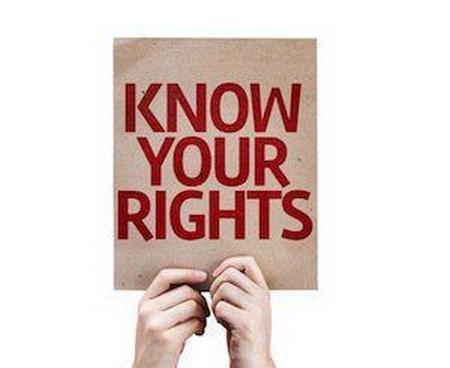Immigrants Voting & The Potential Consequences
 During an election season, quite a lot of misinformation is passed around, with both good and bad intentions. Unfortunately, immigrants - especially newly arrived immigrants - are often misled by this, especially regarding their own rights with regard to participating in the process. It is imperative to set the story straight, especially when there can be serious consequences otherwise.
During an election season, quite a lot of misinformation is passed around, with both good and bad intentions. Unfortunately, immigrants - especially newly arrived immigrants - are often misled by this, especially regarding their own rights with regard to participating in the process. It is imperative to set the story straight, especially when there can be serious consequences otherwise.
What Does The Law Say?
Many believe that immigrants who are lawfully present have the right to vote, and in a few locations, they do, such as Takoma Park in Maryland, but only in local elections. However, federal law has made non-citizen voting in federal elections unlawful since 1996. The rationale is that non-citizens should not be entitled to a voice upon subjects they are not affected by (because, in theory, non-citizens are not affected by issues like tax revenue, U.S. foreign policy or other issues they could simply return home to avoid). While this rationale is often insufficient in practice, the law is still upheld.
Illinois has not permitted non-citizen voting since 1848, aside from a small number who were grandfathered in after the passage of the law disallowing the practice. Many other states, however, including neighboring Indiana, permitted the practice for years, only ending in 1921. Arkansas was the last state to disallow non-citizen voting, in 1926.
Potential Consequences
The law explicitly excludes three categories of people from punishment if they attempt to vote in a federal election: (1) both of their parents, biological or otherwise, were or are U.S. citizens; (2) those who became permanent residents before the age of 16; and (3) the alien had reasonable cause to believe that they were, in fact, a U.S. citizen. No. 3 most often applies to young people brought to the United States before they can remember, but anyone, in theory, could be given wrong information, and immigration authorities are generally not interested in punishing the unaware.
If an immigrant casts a vote in a federal election and is not covered under one of the three categories, there may be immigration consequences. Many unauthorized voters wind up deported, even if they had no intent to commit an offense. In 2015, Matter of Fitzpatrick was decided by the Board of Immigration Appeals, which held that even if a non-citizen has good moral character and is otherwise innocent of any wrongdoing, they may still be deported if discovered to have voted in federal elections. Voting while unauthorized is considered a general, rather than specific, intent offense; in other words, one merely has to have intended to act in the way they did. It is not required that they have intended to commit a crime or civil violation.
Enlist An Immigration Attorney
Many immigrants simply want to do right by their adopted country and participate in its political process. However, if you are not legally able to, you may be in for an unpleasant surprise. Contacting an experienced attorney is a good option to ensure that you are doing all you should. The dedicated Chicagoland immigration attorneys at Mevorah & Giglio Law Offices are happy to help answer your questions, and to work with you to get through what can be a long and frightening process. Call us today to set up an initial consultation.
 English,
English,
 Spanish,
Spanish,
 Polish,
Polish,
 Urdu
Urdu













 Make a Payment
Make a Payment



